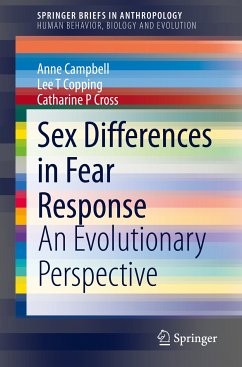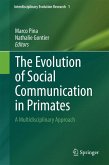This book reviews the evolutionary forces behind sex differences in fear responses and, crucially, delves into the mechanisms through which sexual selection might have driven sex differences in connection with fear. Fear is an evolved mechanism that helps us stay alive, but is also an emotion experienced more intensely, more frequently, and longer in women than in men. This book therefore asks the following question: Why might evolution have made women more motivated than men to avoid danger? It provides an overview of the brain areas underpinning the experience of fear and evaluates the evidence that these areas manifest sex-specific differences in their structure and function. Given its scope, the book will be essential reading for anyone interested in an evolutionary perspective on psychological sex differences.
Dieser Download kann aus rechtlichen Gründen nur mit Rechnungsadresse in A, B, BG, CY, CZ, D, DK, EW, E, FIN, F, GR, HR, H, IRL, I, LT, L, LR, M, NL, PL, P, R, S, SLO, SK ausgeliefert werden.









